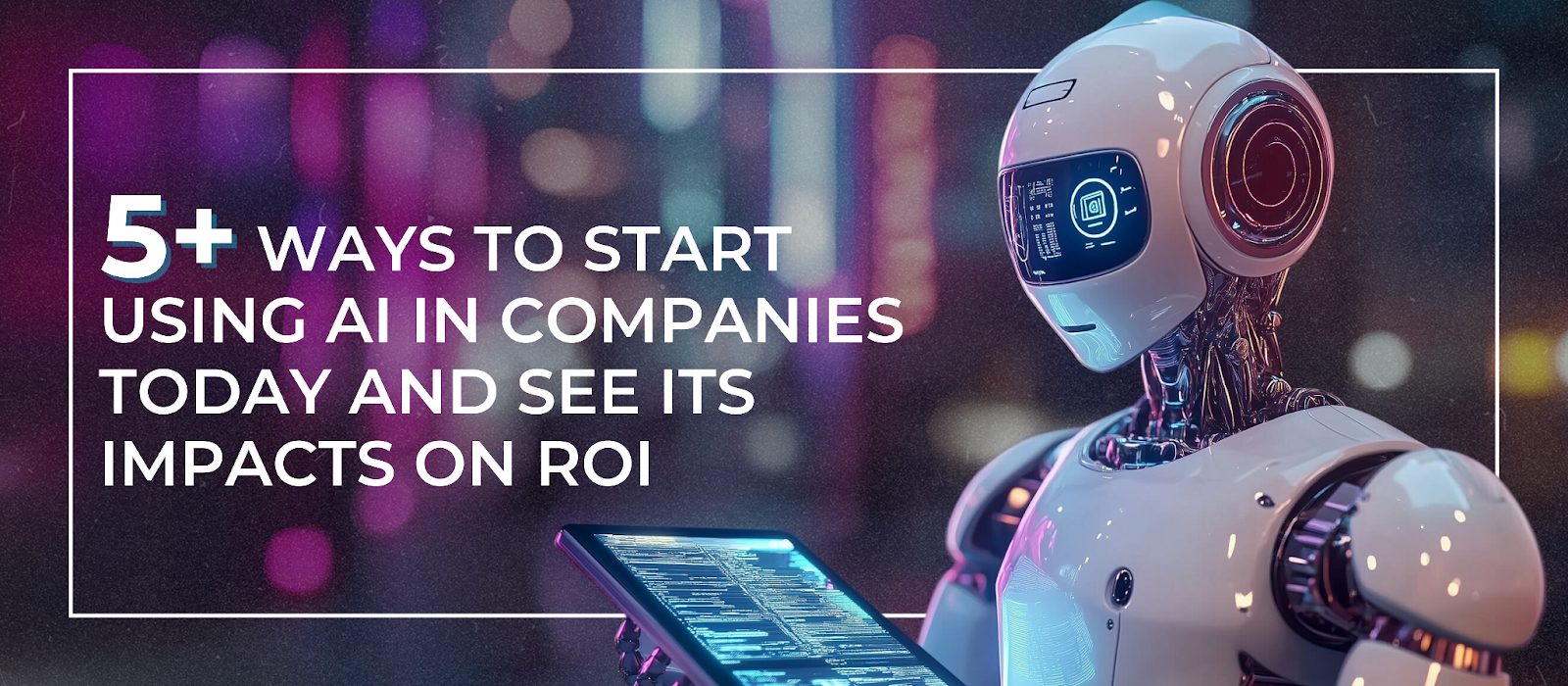Role of AI in Fintech: Use Cases
The term artificial intelligence (AI) is not just an empty phrase. It is an underlying technology that is changing industries worldwide. Regarding the fintech industry, AI is a game-changer in terms of productivity, reducing costs, and providing better outsource image processing services. As we look at the different ways that AI for fintech is used, it is obvious that this is not simply a tool for automating processes.
In other words, as we explore the various ways AI in fintech is being implemented, it becomes clear that this technology is not just about automation—it’s about improving the human experience in the financial world.
What Does AI Signify for Fintech?
Fundamentally, artificial intelligence in fintech uses the latest technologies like machine learning, big data analytics, and the processing of natural languages to improve the efficiency, intelligence, and user experience of financial services. For fintech organizations, this means having the ability to quickly and effectively assess large amounts of data, so with fintech ai development services it is possible to come to informed choices that were previously impossible.
At Data Science UA we have already had some fintech AI use cases. But let’s take a closer look at how is ai used in fintech below in our article.

AI in Fintech Industry: Market Landscape
The growing need for automation and customized services has contributed to the fintech AI solutions market’s fast growth. Industry experts claim that almost every financial institution is implementing AI technologies or has plans to integrate them soon. Over 50% of financial companies in Europe and the United States have already implemented centralized AI models, and around 90% of these organizations are working on strategies to integrate AI in fintech, according to a McKinsey analysis. It’s safe to say that your organization currently uses AI-developed technologies, even if you don’t think they apply to it. They may not have the same visible moniker. It shows how AI has become ever more common across various industries.
Companies invest more money in AI technologies as the fintech industry becomes more competitive. Since businesses look to improve security and streamline processes, they can use AI in fintech analysis, which can detect patterns, automate decision-making, and improve efficiency. It reflects a wider understanding that fintech and AI are the key to success in the future—not just an option.
Who Can Benefit from AI in Fintech?
Financial organizations and customers alike gain from AI in fintech. Firstly, it makes them stand out in the market by giving customers something fresh and useful, which builds customer loyalty and brings in new business. Second, innovations boost the company’s attractiveness to investors and partners. Due to AI’s capacity to examine unique spending habits and financial objectives, customers can also benefit from highly customized financial services, such as investment recommendations and budgeting tools. With AI and fintech, customers may manage their money more effectively by simply getting recommendations tailored to their own needs.
How AI is Shaping the Future of Fintech Companies
AI development services have become important for financial companies because it helps businesses to automate repetitive tasks like tracking transactions and customer support. Businesses can make more data-informed decisions, from risk assessments to marketing plans, with the ability to examine large datasets in real-time. Furthermore, AI in fintech use cases increases operational efficiency by providing quicker, more accurate insights—a critical component of keeping competitiveness in the fintech market.
AI-Powered Customer Support
Fintech companies are exploiting AI in fintech to change customer service. Businesses can handle a wide range of consumer concerns with AI in fintech industry solutions like chatbots and virtual assistants, from regular account administration to giving real-time financial advice.
Would you like to see how it works in practice? Check out our case study on how Data Science UA developed a chatbot for Bank of America.
Enhanced Cybersecurity with AI
Businesses might greatly increase cybersecurity measures through the implementation of AI in fintech. Real-time threat identification is possible with AI, which constantly scans networks for odd patterns that could indicate cyber threats. Companies react to attacks more swiftly and successfully. AI minimizes the need for large cybersecurity teams because it automates procedures and avoids costly data breaches, which benefits businesses financially as well. One of the great examples is PayPal. PayPal uses real-time machine-learning algorithms to track transaction trends. The system facilitates prompt reactions to possible threats and constantly changes to counter new attack options.

Market Trend Forecasting with Predictive Analytics
With the use of predictive analytics, AI in fintech businesses may better plan their strategies and make proactive decisions through predicting changes in consumer behavior. It leads to more effective marketing campaigns. It helps companies with marketing strategies that are more targeted, increasing ROI and conversion rates. Businesses can modify their marketing tactics to take advantage of new opportunities through predicting market changes. Mastercard is one of the use cases. This company analyzes consumer habits and spending trends using predictive analytics. They improved client engagement and retention via providing customized discounts and adjusting marketing strategies in response to changes in purchase trends.
Fraud Detection Enhanced by AI
AI in fintech studies real-time patterns in transactions, detecting some suspicious activities that might imply fraud. The American Express implements this solution. In this firm, AI in fintech serves to instantly evaluate transaction data to spot patterns that could point to fraud. With increasing detection rates and decreasing negative results, machine learning models help businesses respond more quickly and gain the faith of their customers in their security protocols.
Automated Financial Advisory Services
Automated financial advisory services help businesses save money by reducing labor costs. This allows them to serve more clients without needing to hire extra staff. An example of this is Betterment. It is a well-known robo-advisor that offers automated financial planning and investment management services. The platform continuously monitors and modifies these portfolios, providing automated financial advice that aids users in making well-informed decisions regarding investment strategies and retirement planning.
Strategic Planning Through Data Analytics
Strategic planning through data analytics enables businesses to make informed decisions based on real-time information rather than just intuition. This helps them identify risks and opportunities early and allows them to protect their investments. With data analytics services, companies can also track their performance and adjust strategies as needed, ensuring they use resources efficiently.
Transforming Customer Interactions and Lending
Transforming customer interactions and lending processes enhances the overall customer experience. Automation speeds up loan approvals, making the process faster and building trust with clients. Upstart is the company that uses it. It analyzes a larger range of data points, using AI in fintech to determine creditworthiness. This strategy promotes financial inclusion by making loans available to a larger number of people who might not have conventional credit scores.
Advances in Predictive Analytics and Automation
Companies may now create proactive strategies. They can take preventative steps through foreseeing market trends and customer behavior. In addition, predictive analytics helps firms detect threats at an early stage, allowing them to take appropriate actions to reduce risks in the future.
Personalization and Data Analysis with AI
AI-powered personalization and data analysis produce unique experiences for users. Customers are more satisfied with the result of getting services that suit their tastes. Sales can be increased by personalized recommendations based on data. AI speeds up and simplifies data processing and provides deeper insights into customer behavior that help businesses adapt their offerings.
The Digital Evolution of the Financial Industry
Businesses can get a competitive advantage from the banking industry’s digital transformation. Financial services are now more accessible to a larger number of customers thanks to digital platforms. Better price strategies are made possible with these solutions, which often reduce operating costs. As an example, Renaissance Technologies uses artificial intelligence (AI) systems to analyze enormous volumes of market data and improve trading tactics instantly. So, traders may act swiftly and decisively, maximizing profits and lowering risks.

The Advantages of AI in Fintech
There are numerous advantages of incorporating AI into fintech and in the following paragraphs, we will delve deeper into them.
Benefits for Financial Institutions
Automation helps banks and other financial institutions streamline several operations, including loan approvals, compliance checks, and fraud detection. Institutions can run more profitably and service consumers faster by automating specific tasks, which also provides significant cost savings.
Enhanced User Experience
AI greatly improves the finance user experience. Fintech businesses can assess user data and provide personalized product recommendations. This way, customers can be sure they’re getting machine learning development services that are personalized to their individual needs. AI-driven chatbots, for instance, can offer round-the-clock customer care by simply answering questions and solving problems.
Accurate Models
Fintech decision-making will be improved by using AI to create reliable predictive models.
For example, FICO develops prediction algorithms that estimate the probability of loan defaults using artificial intelligence. Financial organizations can improve their risk management methods by making better lending decisions from recognizing risk factors.

AI Challenges in Fintech
Despite its benefits, implementing AI into fintech has disadvantages:
Managing Sensitive Data
The first one is a strong security measure, but don’t be scared; great developers have solutions for this. Managing confidential financial information requires advanced safety precautions to avoid breaches and maintain consumers’ trust. To safeguard user data, finance AI systems must use sophisticated encoding, access limits, and real-time monitoring.
Regulatory Compliance
AI in fintech applications requires adept navigation of intricate regulatory environments. Financial institutions are regulated by several financial and data protection laws and rules, including the GDPR and anti-money laundering (AML) statutes. It can be difficult to guarantee that AI in fintech complies with these standards because laws sometimes differ between countries. To make sure that all data usage and financial processes stay acceptable, AI systems must be built with an understanding of compliance with these regulatory frameworks.
High Entry Barriers
For smaller financial organizations, the costs related to adopting advanced AI in fintech technology can be daunting. High entry barriers are caused because of the large expenses required for AI infrastructure, data processing, and qualified staff. By the way, you’ll still have to implement AI to avoid being ‘left behind’ and these solutions can start paying off quite quickly if implemented now.

Leading Examples of AI in Fintech
AI applications in fintech are great examples of how effectively AI can be integrated. These products are ready-made solutions that can be implemented in your company right now:
Wealthfront: Accessible Financial Advice
Wealthfront analyzes each person’s risk profile and financial objectives using algorithms. Without the need for a human financial advisor, it makes wealth management available to a wider audience through features such as automatic tax-loss harvesting and the creation of individualized investment portfolios.
Kasisto: AI-Powered Digital Assistants
Through their platform, KAI, banks, and other financial institutions may provide their customers with virtual assistants that can answer a wide range of questions, from checking account balances to giving them individualized financial advice. It increases user engagement and improves customer service by providing prompt responses.
Adyen: Comprehensive Fintech Solutions
Adyen uses machine learning algorithms to analyze transaction data in real time, which allows it to identify and stop acts of fraud. Increased client trust results from this AI integration’s streamlining of transaction processes and strengthening of security measures.
Perfios: Data Analytics Excellence
Using AI, Perfios analyzes large amounts of financial data, including bank statements and transaction histories. This greatly increases the precision and efficiency of the screening method while assisting lenders in making well-informed decisions about risk assessments and loan approvals.
Suplari: Smart Financial Management
Suplari monitors patterns of spending with AI to offer useful information. It lets businesses find ways to cut costs, make better use of their budgets, and further improve their financial planning, all of which help them make more informed spending decisions.
FAQ
Why is AI essential for financial services?
In the financial industry, AI optimizes customer service, reduces expenses, and increases efficiency. Automating tasks like risk management, fraud detection, and predictive analytics, increases regulatory compliance and allows for immediate action.
How is machine learning applied in fintech?
Algorithmic trading, credit scoring, machine learning, and personalized banking are examples of AI ml in fintech. It assists in the analysis of huge datasets to find trends, refine investment plans, and offer AI chatbot development services.
What ethical issues arise with AI in fintech?
Key issues include biased algorithms, lack of transparency, data privacy, and potential job loss due to automation, but it can be reformed, and you can conduct additional manual screening if necessary. Therefore, it is all manageable right now.
How is AI impacting the banking industry?
AI in fintech industry has changed the sector through boosting security, optimizing customer service, and automating procedures. Banks offer real-time customer care using chatbots that are driven by AI, which speeds up response times and enhances user satisfaction. Banks can provide individualized goods and services, like customized investment possibilities and financial guidance, thanks to AI-driven data. Furthermore, with spotting anomalous activity in transactions and guaranteeing regulatory compliance, AI improves fraud detection, so the role of AI in fintech is crucial.





